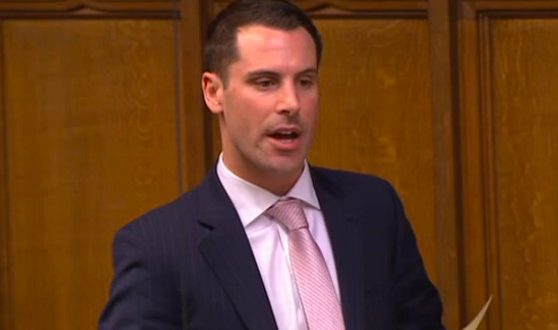The UK Gambling Commission (UKGC) has been branded an “under-performing regulator’ that has acted beyond its powers by the All-Party Parliamentary Group on Betting and Gaming (APBGG) providing recommendations to the 2005 Gambling Act Review.
Publishing its ‘Investigation into the Competence and Effectiveness of the Gambling Commission’, the cross-party group described the Commission as having gone’ rogue’ and adopting an ideological stance against the betting industry.
In support of its assertions, the report focused on a number of case studies in which it believed that the UKGC had overstepped its powers as a regulator or had failed in its duties, notably highlighting the collapse of BetIndex as the biggest ‘scandal’ to hit the Commission.
The Commission has been accused of ignoring complaints relating to BetIndex’s business model – including one from the Independent Betting Adjudication Service (IBAS) – and of failing to acknowledge the firm’s ‘Go to Market’ feature during its application process for a licence.
Lastly, the UKGC’s two-year investigation into BetIndex’s operations was described as ‘too-long’, with the Commission initiating a full review into the compay in May 2020 with ‘no decisive action’ until March 2021 when the firm’s licence was suspended following the customer exodus – a decision described as ‘reactive rather than proactive’.
Rather than providing oversight of the operations of firm’s such as BetIndex, the APBGG has instead argued that the Commission has been pursuing an ideologically driven ‘war’ against the betting and gaming industry, highlighting quotes from recruits expressing a dislike towards betting advertising as an example of this.
Of significance, the report’s forward statement cites that the group does not carry favour with certain UK gambling trade bodies that advised members not to participate in its research – “at a time when they were trying to ‘reset relations’ with the new CEO and Chair”.
‘As Co-Chair of the All Party Betting and Gaming Group, I am truly shocked to reveal so much evidence of bad practice by the Gambling Commission over the years,” said Scott Benton MP, Co-Chair of the APBGG and an MP with strong links to the betting sector.
“We have been hearing stories for years, but to see it in black and white is pretty stark. To think that members of our gambling industry, one of the most reputable in the world, who pay the Commission’s wages, have had to suffer such poor service from their regulator is of the utmost concern. Especially as it acts like it is an anti-gambling group, whose sole purpose is to destroy the industry.”
The Commission is accused of diverting away from its operating mandate, in order to pursue an ‘ideological mission’ to eradicate problem gambling harms, in which it holds no ‘evidence based strategy’.
UKGC actions on affordability checks were highlighted as examples of the Commission ‘acting ultra vires’, going beyond what is expected of it as a regulator. The parliamentary group reported that complaints had raised concerns of the intrusive nature of affordability checks, a measure described as reducing overall levels of gambling but not of problem gambling.
Additionally, one respondent to the APGGG investigation argued that the UKGC has been circumventing the legal requirements of imposing regulations, a strategy that was being used increasingly to “impose excessive and at times undefined regulations without the need for industry consultation”.
“We believe that the Commission is acting ultra vires in its strategy of seeking to significantly reduce the number of problem gamblers,” read the report’s summary of the UKGC’s governance objectives.
“We are obviously not against the concept but believe that the Commission has neither the tools or expertise to attempt such a thing, which has never been attempted elsewhere, via regulatory methods alone. We believe that the Commission is on an ideological mission that will undoubtedly lead to an explosion in the black market.”
The report cites direct conflicts undertaken by the Commission that is deemed to have acted beyond its regulatory remit – be it on the imposition of affordably checks, measuring risks and vulnerabilities, applying COVID-19 restrictions, misuse of research and authorising inspections of licensed operators.
The APBGG believes that the UKGC has forgotten its own ‘Statement of Principles’ and is now ignorant of its statutory duty to ‘permit gambling’. The UKGC is therefore deemed to have failed in its statutory duty to uphold the Regulators Code, in which governing bodies must “carry out their activities in a way that supports those they regulate to comply and grow”.
On compliance enforcements the UKGC is branded a ‘less than competent’ by case studies that deem findings from investigation “to be written in ambiguous terms with scant evidence of why they found their findings.”
Furthermore, the Commission does not “participate in industry engagement, or in AML forums” and is accused of providing a constant negative commentary about industry activities and incumbents.
To solve the perceived problems it has identified, the APBGG has detailed five key recommendations to legislators and the public, with the parliamentarians asserting that the UKGC’s role needs to be more clearly defined.
As an unelected body, the legislators argued, the UKGC should not have the responsibility to “weigh up the benefits of decreased problem gambling numbers versus economic dereliction and an increased illegal gambling” – this should instead be left to elected legislators.
Furthermore, in response to the UKGC’s actions in ‘flagrant breach of practically all the Regulators Code’, the APBGG asserts that the government’s Better Regulation Executive to undertake an audit of the Commission and a Queen’s Counsel should be commissioned to undertake an independent investigation of the authority’s enforcement process.
The penultimate recommendation is that the DCMS should take on the responsibility for the gambling industry’s complaints process, as the MPs believe that operators are ‘too scared to use’ the current system in place whilst any failings on the Commission’s part are not detected.
Finally, the parliamentary group concluded that a distinction needs to be made between ‘high risk’ and ‘low risk’ gambling operators in order that the ‘level of regulation can be made proportionate’, arguing that this would be an ideal outcome of the Gambling Act overhaul.
Of utmost importance the APBGG demands that DCMS answer the question of whether its the “Gambling Commission’s job to actively seek a significant reduction in the number of problem gamblers?” – as a statutory obligation of its review of the 2005 Gambling Act.










